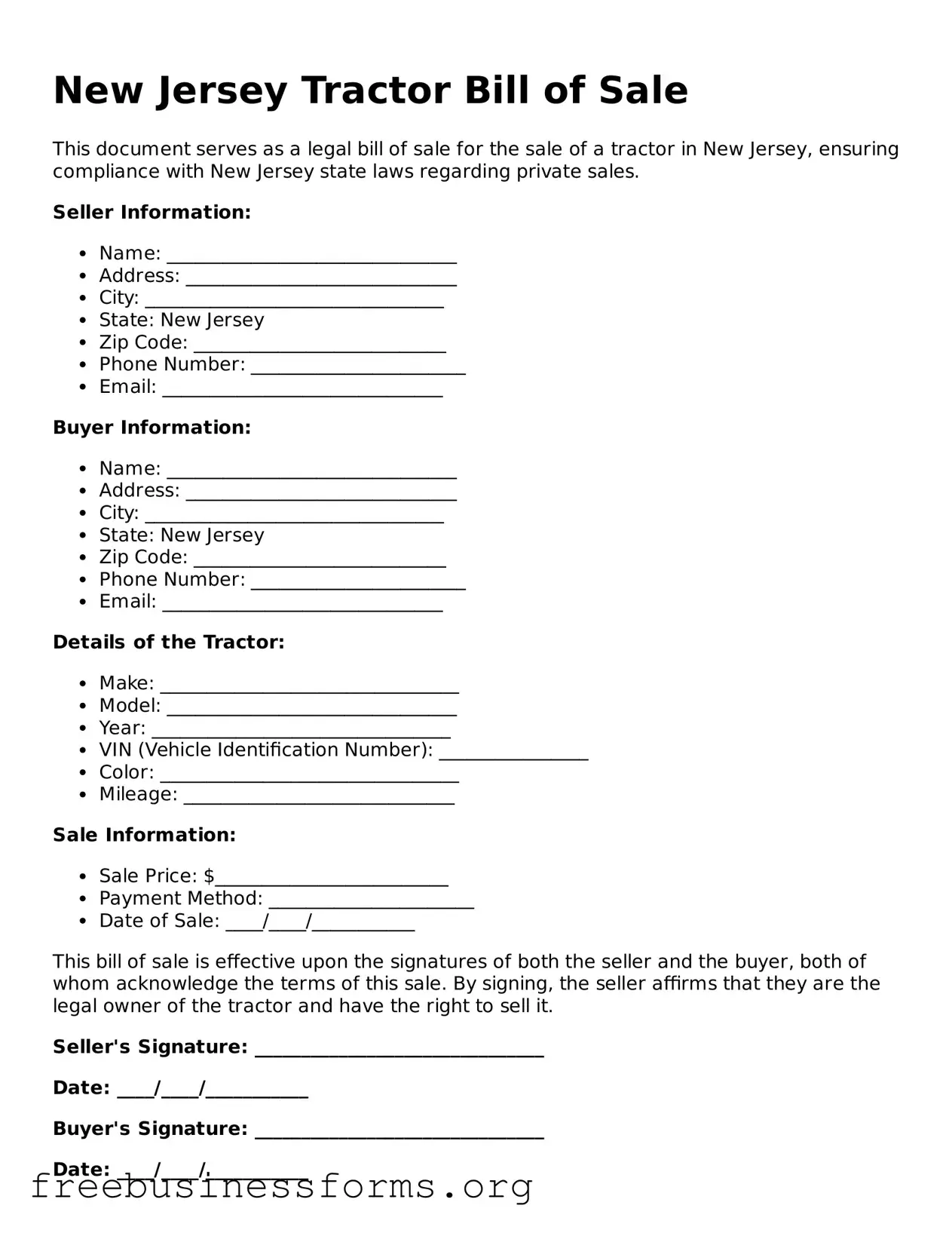Blank Tractor Bill of Sale Template for New Jersey
The New Jersey Tractor Bill of Sale is a legal document that records the transfer of ownership of a tractor from one party to another. This form serves as proof of the transaction and outlines essential details such as the buyer, seller, and tractor specifications. Understanding its importance can help ensure a smooth and transparent transfer process.
Open Form Here

Blank Tractor Bill of Sale Template for New Jersey
Open Form Here

Open Form Here
or
↓ PDF File
Quickly complete this form online
Complete your Tractor Bill of Sale online quickly — edit, save, download.